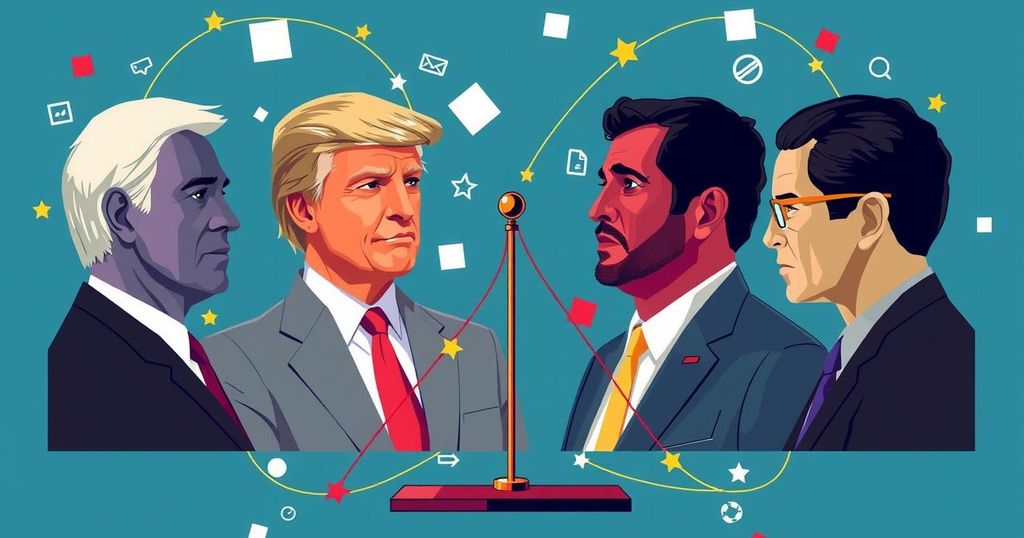The Role of Election Coalitions in Fighting Misinformation Globally
A panel at IGF 2024 underscored the importance of election coalitions in combatting misinformation. Experts from various fields discussed strategies like the ‘Elections Playbook’ from Google, successful models from Brazil and the Philippines, and challenges such as government pressures and AI-generated misinformation. The consensus was on the need for ongoing collaboration and innovative approaches tailored to local contexts.
The panel discussion at the IGF 2024 in Riyadh emphasized the essential role of election coalitions in addressing the pervasive issue of misinformation, which undermines electoral integrity globally. Key contributors from varied sectors, including Google representatives and journalism professionals, articulated the necessity of collaborative efforts to safeguard democratic processes. Notably, Mevan Babakar of Google presented the ‘Elections Playbook,’ a strategic guide advocating for trust and neutrality among diverse stakeholders involved in the coalition-building process.
During the discussion, successful alliances were highlighted, such as Brazil’s Comprova, which aggregates media organizations to fact-check electoral claims, and Facts First PH in the Philippines, which emphasizes a community-driven model of information dissemination. Daniel Bramatti, an investigative journalist, highlighted the significance of fact-checking as a proactive response to false information. He asserted, “Fact-checking is the free speech response to misinformation,” promoting the need for contextual understanding over mere censorship.
Challenges faced by these coalitions, particularly in the post-election landscape and in the face of governmental scrutiny, were also addressed. Alex Walden, Google’s Global Head of Human Rights, pointed out the complexity of maintaining neutrality while engaging with governmental bodies. She noted, “We have to be mindful of the role that we have in engaging neutrally,” underscoring the necessity of transparent and uniform content moderation policies.
Engagement with youth demographics in fact-checking was another focus, with David Ajikobi highlighting the success of media literacy initiatives in Nigeria. The consensus among panelists called for a multistakeholder methodology that prioritizes specific harms instead of the blanket term ‘misinformation,’ as suggested by Peter Cunliffe-Jones from Westminster University.
The session concluded with actionable insights for initiating or participating in election coalitions. Experts advised prioritizing relationship-building and appointing coordinators characterized by neutrality and independence. The overarching message was a call for ongoing collaboration and innovation tailored to local contexts, ensuring the sustainability and effectiveness of coalitions beyond electoral cycles.
The prevalence of misinformation during election periods poses a significant threat to democratic processes globally. As society increasingly relies on digital communication, understanding the dynamics of misinformation becomes critical. Election coalitions have emerged as a vital strategy in addressing these challenges, leveraging collective efforts among varied stakeholders to enhance credibility and trust in electoral outcomes. The discussion at IGF 2024 aimed to explore these dynamics, sharing experiences and outlining methodologies that can effectively counter misinformation.
In conclusion, the panel at IGF 2024 highlighted the crucial role of election coalitions in combating misinformation, advocating for cooperation among stakeholders to protect democratic processes. The emphasis was placed on innovative strategies such as fact-checking and media literacy programs, while also addressing the challenges faced by these coalitions, including governmental pressures and the rise of digital misinformation. The collaborative approach and focus on relationship-building are essential in maintaining the integrity of elections in an evolving digital landscape.
Original Source: dig.watch




Post Comment